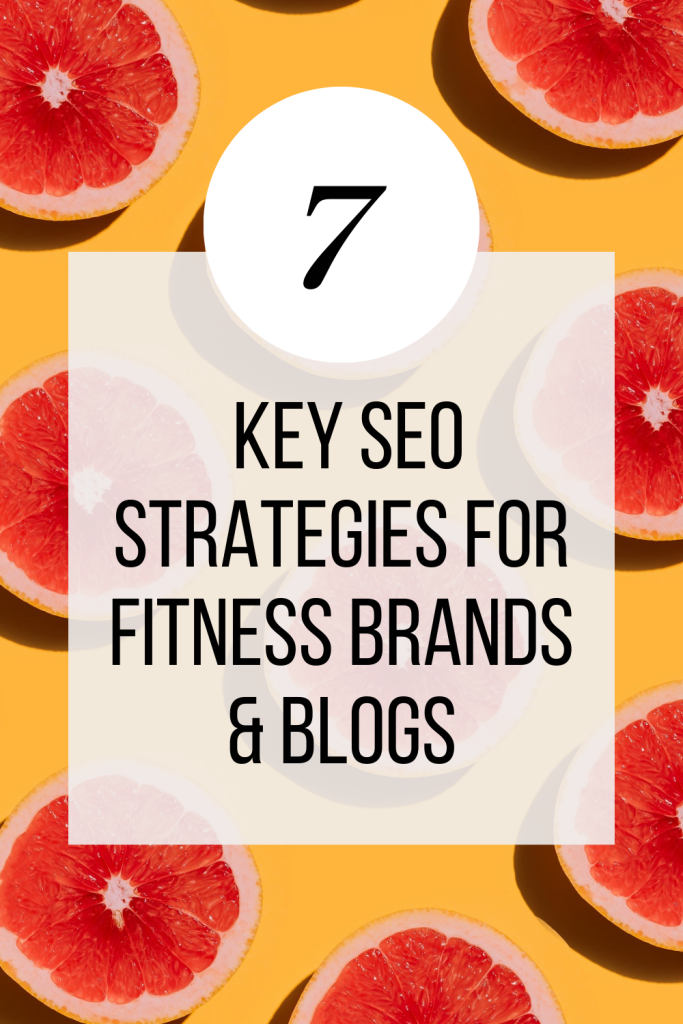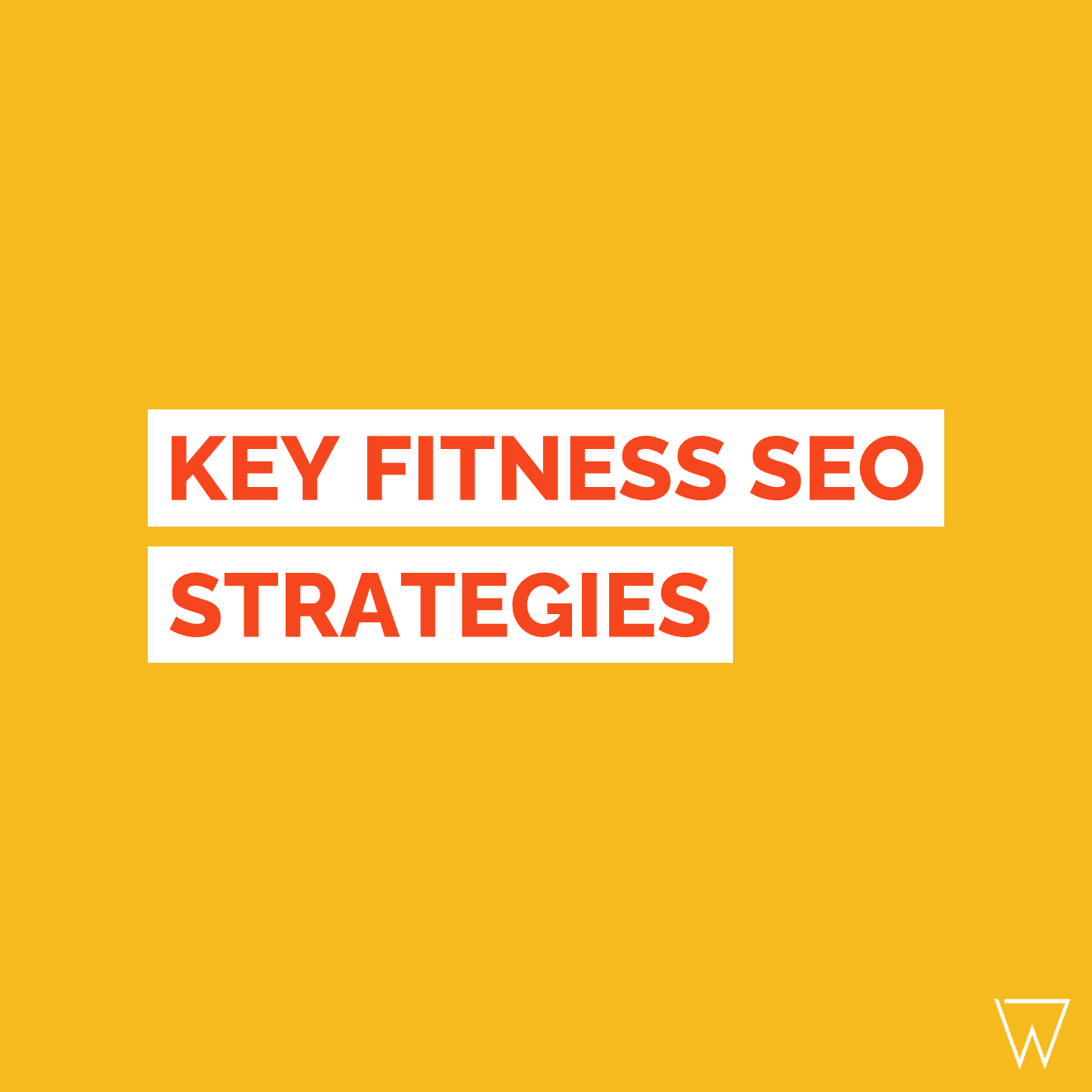Looking for fitness-specific SEO strategies for your website? Whether you run a gym, boutique studio, or health club, it’s vital to have a strong website that generate leads for your business. Search engine optimsation (SEO for short) is an essential part of getting your site found on Google so it can send lots of lovely web visitors your way.
In the article – we outline 7 fitness SEO strategies for gyms, health clubs, and studios to ensure your websites perform well on Google.
We’re a specialist fitness marketing agency with 15+ years of industry experience, so we know first-hand what works (and what doesn’t!). We’ve helped gyms, fitness studios, and personal trainers to successfully promote their businesses online, so our web marketing strategies are tried and tested.
Why SEO matters
SEO is an essential part of any digital marketing strategy because it ensures that your fitness business can be found on Google (or other search engines like Baidu, Bing, and Yahoo).
Most prospective gym members and fitness clients will search for training options online as their first step towards signing up. They’ll research which fitness facilities are located near their home or work, then explore facilities and pricing. But if your gym’s website doesn’t appear in the top search results, then they’re not going to be able to find you.
82% of customers research their purchases online (even if they prefer to actually buy in person).
Forbes
But with a solid SEO strategy, your fitness business will be on the first page of Google which will mean lots of people visit your website. More web visitors means more people entering your sales funnel, from enquiries, leads, and prospects to trials, sign-ups, and purchases.
In short, good SEO = more website visitors = more revenue.

SEO for Fitness Websites
Before we talk strategies, it’s also worth noting that SEO for fitness websites is slightly more nuanced than for other industries. This is because fitness is a ‘Your Money or Your Life’ (YMYL) sector where the information can affect people’s health. This means that Google places stricter safeguards around the credibility and accuracy of fitness websites to ensure reader safety.
Back in 2018, numerous health and fitness sites saw a huge decrease in visitors as their Google rankings plummeted following an algorithm update. The search engine had outlined new guidelines on what’s considered good quality fitness content and websites that didn’t meet this requirements tanked. So, it’s vital that your fitness SEO strategies align with best practices outlined in Google’s quality rater guidelines.
50 Fitness Marketing Templates
Fitness SEO Strategies For Boosting Website Rankings
So, how can you improve your search engine optimisation and rankings? Let’s look at fitness SEO strategies for gyms and studios to drive more website traffic…
- Defined web goals
- Strategic keyword selection
- SEO content creation
- About page
- Clear authorship
- Reviews and testimonials
- Links and press coverage

#1 – Define Your Web Marketing Goal
The most important step in any marketing strategy is to clearly define your goal. What do you want your fitness website to achieve?
- Do you need it to drive leads for membership sales?
- Be a source of useful information for prospective and existing members?
- Aid retention and loyalty by providing valuable content to existing clients?
The goal you define will impact the other SEO strategies you use, so it’s important to be clear on this from the start.
#2 – Strategic Keyword Selection
A big part of SEO is finding the right keywords to target. Which search phrases do you want your gym to show up for in Google?
If your goal is lead generation, then showing up for phrases like ‘gym near me’ or ‘gym pricing’ might be important. But if you want your site to be a source of info, then keywords like ‘X gym class timetable’ or ‘X gym parking’ might be more suitable.
It’s all about being strategic with the phrases you choose to target as this will mean your visitors are the ones you want. Having a high-performing article on ‘HIIT training workout moves’ might attract lots of people, but are they ones who’ll want to use your gym? They’re more likely to be researching this topic for ideas they can do at home, so aren’t a great fit for your business.
To learn more about this topic, check out our guide to fitness keywords.
#3 – SEO Content Creation
Creating high quality content is essential for your SEO efforts. Whether it’s a blog post, pricing page, or video, it needs to be clear and accurate. If you’re giving fitness advice, then make sure you’re using an evidence-based approach that’s supported by science (and linking to the appropriate references).
Here are some resources that go into depth about creating quality content…
If you’re producing content that isn’t honest and accurate, then the health of your readers could be at stake so it’s only right for Google to de-rank it. Take a look at Google’s quality raters guidelines for specific advice on what good fitness content looks like.
#4 – About Page
An ‘about’ page can provide information about the expertise, authority, and trust of the people producing the content. This is essential for good fitness SEO.
About pages have fallen out of favour in recent years with many marketers claiming that readers want to know how you can help them rather than your life history. However, from an SEO perspective they remain one of the most important pages on a website and an essential quality requirement according to Google’s guidelines.
You might also like… Our simple SEO guide for personal trainers.
#5 – Clear Authorship
Google is also interested in the credentials of your content authors so it’s important to include up-to-date bios. As you can see in the image below, the Healthline website does this really well. It includes the qualifications of every article author which links to a longer bio with more detail. This demonstrates that they are qualified to write about the topic and are more likely to produce accurate info.

#6 – Reviews & Testimonials
Including reviews and testimonials on your site is another way to prove the quality of your offering. It’ll also help to convert more sales as people will see the purchase as less risky. Be sure to include them as text on your site so that the Google bots can read them easily. If you include them as images then the bots may not understand what they are. If you’re able to include star-ratings for your products or services, then include these too.
You might also like… this guide to creating effective fitness testimonials.
#7 – Links & Press Coverage
Getting press coverage is another form of social proof and gives your website more credibility. Including the logos of well-known websites or magazines that you’ve been featured in will demonstrate that you’re a legitimate authority. Having respectable websites link to yours also aids SEO as Google sees this as a sign your site is trustworthy.
Outward links to your social profiles also demonstrate proof that you’re site is a real business. After all, people won’t follow or like pages that produce low-quality material. So, if you do have social media pages set up for your business, be sure to link to them from your homepage.

Fitness Marketing Ideas Mini-Guide
25 fitness marketing ideas for your gym, studio, or online business. Attract new members, get more PT clients & boost your fitness blog.
Summary
Our approach to fitness SEO is really about doing business with integrity. When people’s health is at stake, it’s crucial to approach marketing responsibly. This means writing accurate articles and creating high-quality content based on scientific evidence.
Focusing on education over sales is also likely to boost your rankings and credibility too. Google wants content to be useful, so fill your website with information that’s truly helpful and valuable to readers. This way you’ll attract quality backlinks, won’t fall foul of the next algorithm update, and can continue to grow your customer base.
Fitness Marketing & Content Templates
Our ready-made templates make it quicker, cheaper, and easier to promote your fitness business. They can improve the effectiveness of your sales and marketing campaigns. If you aren’t an experienced marketer, then templates also provide a useful guide for you to follow.
50 Fitness Marketing Templates
Whether you run a gym club, fitness studio, or personal training business, these templates will save you time and effort. They’ll help you to plan and organize your promotional activities so that you generate more revenue. You’ll get 50+ templates covering content marketing, social media, advertising, and more.


 АРХИВ
АРХИВ БОКС И ЕДИНОБОРСТВА
БОКС И ЕДИНОБОРСТВА Игровые виды спорта
Игровые виды спорта КАРДИОТРЕНАЖЕРЫ
КАРДИОТРЕНАЖЕРЫ МАССАЖНОЕ ОБОРУДОВАНИЕ
МАССАЖНОЕ ОБОРУДОВАНИЕ МЕДИЦИНА РЕАБИЛИТАЦИЯ
МЕДИЦИНА РЕАБИЛИТАЦИЯ СВОБОДНЫЕ ВЕСА
СВОБОДНЫЕ ВЕСА СИЛОВЫЕ ТРЕНАЖЕРЫ
СИЛОВЫЕ ТРЕНАЖЕРЫ Соревновательное оборудование
Соревновательное оборудование СПОРТ ДЛЯ ДЕТЕЙ
СПОРТ ДЛЯ ДЕТЕЙ СПОРТИВНОЕ ПИТАНИЕ И АКСЕССУАРЫ
СПОРТИВНОЕ ПИТАНИЕ И АКСЕССУАРЫ УЛИЧНЫЕ ТРЕНАЖЕРЫ
УЛИЧНЫЕ ТРЕНАЖЕРЫ ФИТНЕС И АЭРОБИКА
ФИТНЕС И АЭРОБИКА